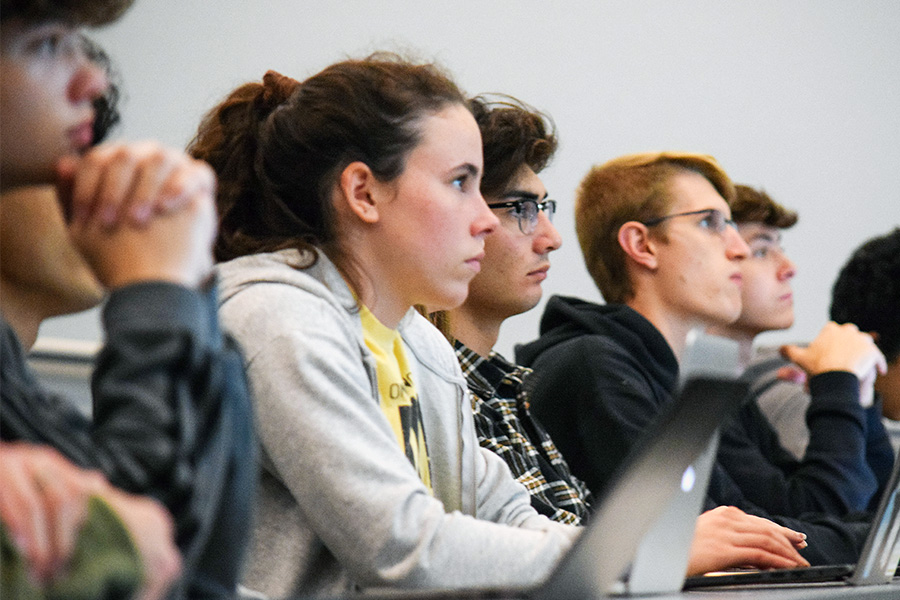Students pack in for fluid model reduction talk with ETH Zurich professor

George Haller, professor of mechanical engineering at ETH Zurich, presented to a full room of engineering students and faculty at Purdue's School of Aeronautics and Astronautics. He presented a solution to computer modeling of dynamical phenomena such as nonlinear vibrations of solids and transitions in fluids. These systems remain a challenge for classic machine learning because they are non-linearizable.
Haller was visiting to speak for the Midwest Mechanics Seminar series, which invites outstanding researchers in fluid and solid mechanics to present their work at several midwestern universities in the United States.
"Events like these expose our students to cutting-edge research and techniques," says Purdue AAE Professor Jonathan Poggie, who hosts fluid mechanics speakers at Purdue for the Midwest Mechanics Seminar series.
Haller, who is also chair of nonlinear dynamics at ETH Zurich, talked about a data-driven spectral submanifold (SSM) reduction method that improves modeling for these types of multi-oscillation fluid systems.
SSM is a dynamical-systems alternative to neural networks in the data-driven reduced-order modeling of nonlinear phenomena. He says SSMs are effective in a large family of mechanics problems ranging from wing oscillations to transitions in shear flows.

Haller says that SSMlearn, software developed by one of his students-turned-postdocs, is able to produce nonlinearlizable functions from experimental data in a way that goes beyond pattern-matching. The SSMlearn program has not only been effective " Haller says it has also survived the challenge of making accurate predictions even after it is working outside of the training dataset.
Poggie says Purdue graduate students are already looking into applying Hallers methods to time-series data from simulations and experiments. SSMlearn is available for download on GitHub.
The Midwest Mechanics Seminar Series has been held every year since 1958, except for 1983 and 2020. Each year, four researchers are selected through a vote which involves the faculty at all 10 participating universities. The seminar series currently invites researchers to present at 10 different midwestern universities under two separate tours. Find more information on the Midwest Mechanics Seminar Series website.
Story and photos by Alan Cesar
